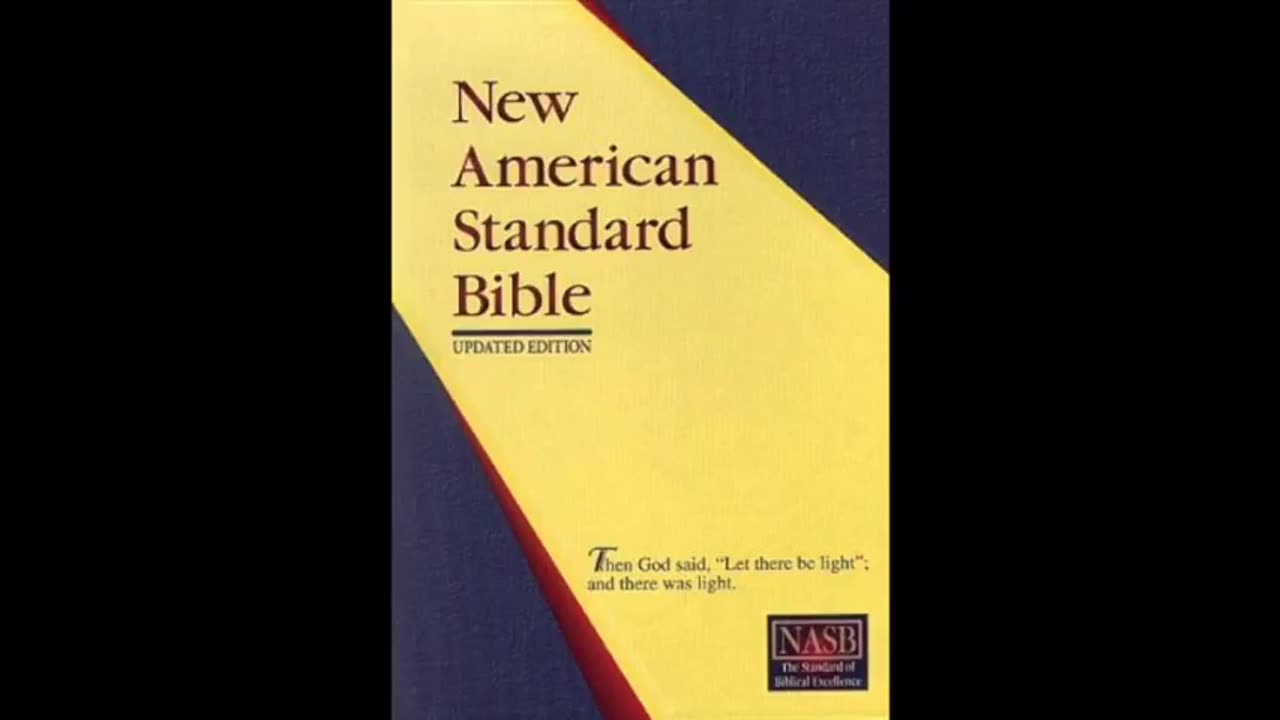Premium Only Content

The Book of 1st Timothy (NASB Audio Bible Non Dramatized)
The book of 2nd Timothy is a Pastoral Epistle (letter from Paul to a church leader). The author is the Apostle Paul who wrote it approximately 67 A.D. and is probably his last letter. After Paul’s release from his first imprisonment in Rome in AD 61 or 62, and after his final missionary journey (probably into Spain), he was again imprisoned under Emperor Nero c. 66-67. The key personalities are Paul, Timothy, Luke, Mark, and many others.
Its purpose was to give direction to Timothy and urge him to visit one final time. From the somber nature of this letter, it is apparent that Paul knew that his work was done and that his life was nearly at an end (4:6-8).
• In chapters 1-2, Paul begins with thanksgivings and an announcement to remain faithful, strong, and to “Join with me in suffering for the Gospel” (1:8). In contrast to his first imprisonment (where he lived in a rented house), he now languished in a cold dungeon (4:13) chained like a common criminal (1:16; 2:9). He also reiterates the important work of “entrusting the faithful men who will be able to teach others” (2:2). Paul’s desire was to equip the saints with the knowledge of how to teach others.
• In chapters 3-4, Paul tells Timothy to remain faithful and “preach the word; be ready in season and out of season; reprove, rebuke, exhort, with great patience and instruction” (4:2), because difficult times would be in the future. He challenges him to endure reminding him that endurance is one of the main quality essentials for a successful preacher of the Gospel. Men would become just as they were in the time of Moses. He writes that, “all who desire to live godly in Christ Jesus will be persecuted” (3:12).
• At the end of chapter 4, Paul writes about personal concerns asking that some of his personal items be brought to him. It appears that his imprisonment was completely unexpected. Soon after this letter, probably the spring of 68 A.D., it is likely that Paul was beheaded as a Roman citizen.
“I have fought the good fight, I have finished the course, I have kept the faith; in the future there is laid up for me the crown of righteousness, which the Lord, the righteous Judge, will award to me on that day; and not only to me, but also to all who have loved His appearing” (4:7).
-
 1:14:45
1:14:45
Awaken With JP
3 hours agoTrump's Making Everyone His B*tch LOL - LIES Ep 76
24.7K6 -
 1:41:43
1:41:43
Megyn Kelly
22 hours agoMedia's ICE Hoax, Vance's Masterclass on CBS, & Trump vs Bass, w/ Steve Bannon & Batya Ungar-Sargon
30.1K50 -
 LIVE
LIVE
In The Litter Box w/ Jewels & Catturd
21 hours agoGreen New Scam | In the Litter Box w/ Jewels & Catturd – Ep. 729 – 1/28/2025
5,376 watching -
 2:03:41
2:03:41
The Quartering
3 hours agoTrump To END Income Tax, Captain America Backlash, Obese Rapper Sues Lyft & Surge Pricing In Walmart
50.5K18 -
 1:05
1:05
tether
10 hours agoHadron by Tether - tokenize anything, anywhere
7.55K2 -
 34:32
34:32
Standpoint with Gabe Groisman
19 hours agoGovt. Workers AREN’T Working Says DOGE Chair Sen. Joni Ernst
6.38K5 -
 DVR
DVR
Savanah Hernandez
3 hours agoMASS DEPORTATIONS ARE HERE AND THEY ARE GLORIOUS
13.7K3 -
 21:12
21:12
Clownfish TV
15 hours agoThe Video Game Industry LITERALLY Wants You Dead?!
10.1K4 -
 1:35:44
1:35:44
Right Side Broadcasting Network
5 hours agoLIVE REPLAY: First Press Briefing by White House Press Secretary Karoline Leavitt - 1/28/25
106K94 -
 DVR
DVR
vivafrei
6 hours agoJan. 6 Injustices! Jeremy Brown STILL IN JAIL! Untold Story of Ashli Babbitt Killer Michael Byrd!
58.7K16